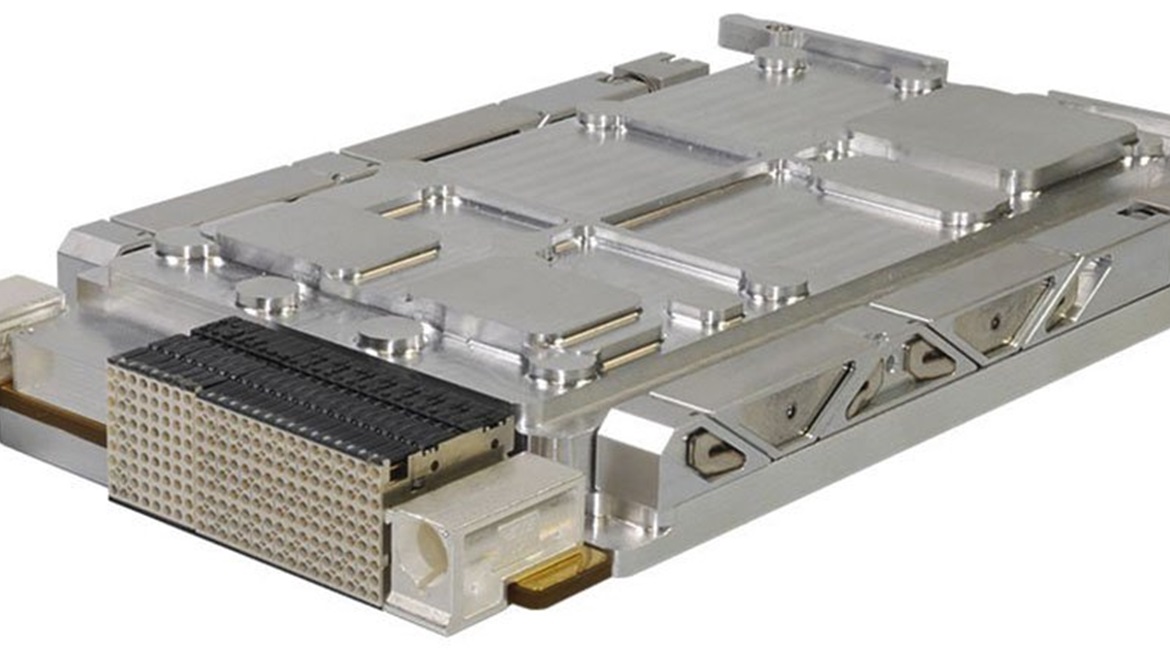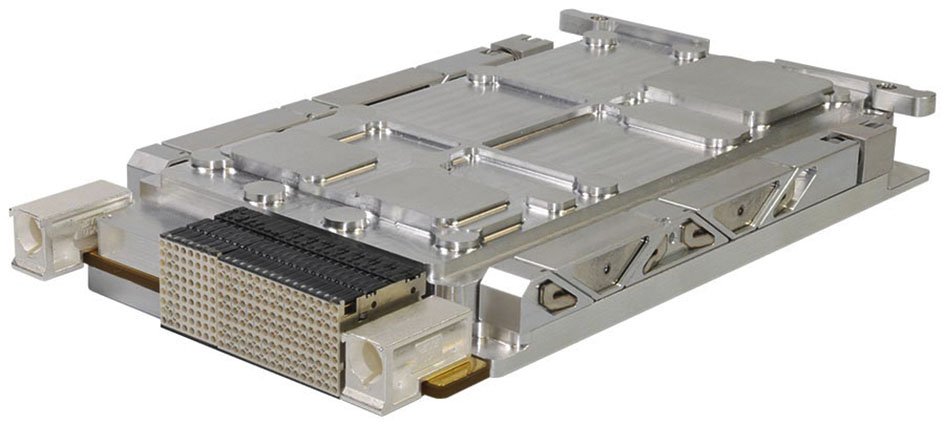
Mercury Systems has shipped the first prototypes of its space-qualified 3U TRRUST-Stor VPX RT commercial solid state drives (SSDs) for Low Earth Orbit (LEO) satellite application.
The SSD is designed to deliver long-term data integrity in radiation-intense environments. The company expects to begin shipping flight units in the first half of calendar year 2019.
“Customer demand for commercial radiation-tolerant SSD devices for LEO satellites has far surpassed our expectations as we continue to gain share in this dynamic market,” Iain Mackie, vice-president and general manager of Mercury’s Microelectronics Secure Solutions group, said.

Mercury Systems has shipped the first prototype of its radiation-tolerant 3U TRRUST-Stor VPX RT space-qualified secure solid-state drives to two suppliers of Low Earth Orbit satellites. (Mercury Systems)
The new 3U TRRUST-Stor VPX RT SSD weighs less than 500 g and features the proprietary NAND controller with BuiltSECURE error correcting code (ECC) algorithms. NAND is a type of flash memory.
“These ECC algorithms mitigate radiation-induced byte errors, thereby enabling sustainable reliability and fault tolerance that are not available with competing storage solutions. As Mercury maintains 100% authority over the controller and its implementation, this device is readily customisable for non-traditional use cases when deemed critical to a customer’s programme,” Mercury Systems said.
Engineered into an open standards platform, customers can seamlessly integrate this new SSD device into the SpaceVPX ecosystem of processing boards and chassis and is the first commercial SSD leveraging VITA 78 SpaceVPX standards.
“As the need for radiation-tolerant devices for LEO satellites proliferates, system development around the SpaceVPX open standard architecture will be integral in supporting the growth of the space market,” Mercury Systems said.
Looking to read the full article?
Gain unlimited access to Janes news and more...




